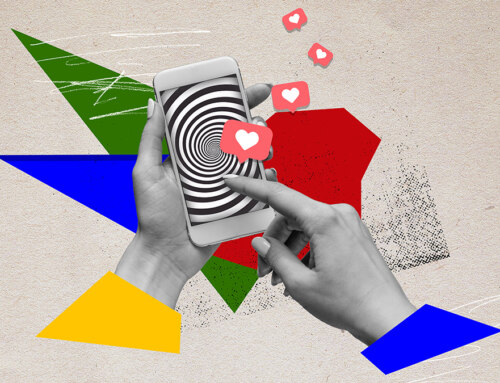In today’s digital age, social media has become an integral part of our lives, enhancing connection, increasing self-esteem, and improving a sense of belonging. However, it can also lead to tremendous stress, pressure to compare oneself to others, and increased sadness and isolation.
Several studies have pointed out the possible adverse effects of social media use on mental well-being. Worries have been expressed that social media may create body image dissatisfaction, increase the risk of addiction and cyberbullying involvement, contribute to phubbing behaviors, and negatively affect mood. Excessive use has increased isolation, loneliness, fear of missing out (FOMO), and decreased subjective well-being and life satisfaction. Users at risk of social media addiction often describe feelings of depression and lower self-worth.
As we dive into the pros and cons of social media on mental health across generations – from Generation X to Generation Alpha – it’s important to recognize how each group experiences and navigates the digital world.
Generation X was born 1965–1980, and the main thing social media allows them is reconnecting with long-lost friends, classmates, and family members, fostering a sense of belonging and nostalgia. They share information, experiences and achievements with each other, and for them, this is the purpose of social media.
However, they as a generation are more cautious about sharing personal information due to growing up in an era with more limited online exposure, and some of them easily share sensitive details like credit card information online because of the struggle to adapt to rapidly changing technology.
Generation Y, also called millennials, was born from 1981–1996. They also use social media for communication, but more in the sense of community building by joining groups of interest and exchanging information and knowledge in those groups.
They also consider social media a powerful tool for raising awareness about an issue or promoting a business.
However, social media also comes with cons, as millennials often experience the effects of social comparison, leading to feelings of inadequacy, jealousy, and the fear of missing out (FOMO).
This leads to mental health troubles, but they are a generation more open to discussions about it through various platforms while sharing personal struggles and resources, fostering a more supportive environment.
Excessive social media use can contribute to addictive behaviors, impacting millennials’ ability to disconnect and engage in offline activities.
Generation Z was born from 1997–2010, and considering their understanding of technology and social media, they have the biggest benefits from immediate access to vast amounts of information, enabling them to learn, grow, and explore diverse perspectives quickly.
These platforms also provide them a place to express their creativity, showcase talents, and engage with art and culture on a global scale.
Online learning and educational content shared through social media can enhance Gen Z’s knowledge and skill development.
But great benefits come with great risks, meaning unique pressures for Gen Z, including cyberbullying, body image issues, and the pressure to curate a perfect online persona, potentially contributing to anxiety and depression.
Constant exposure to bite-sized content and the addictive nature of social media can negatively impact productivity and real-life interactions, affecting overall mental well-being and the ability to focus on in-depth tasks or activities.
Their quest for likes, comments, and shares can lead to a dependence on external validation, affecting self-esteem and overall mental well-being.
Because of this, the mental health of Generation Z is highly affected with the daily usage of social media, as they often seek outside validation in order to feel appreciated.
Lastly, Generation Alpha was born after 2010, and they grew up in a digital world with strong digital literacy skills, which enabled them to navigate and leverage technology effectively.
Another benefit they receive daily from social media is the exposure to different cultures, languages, and viewpoints from an early age while enhancing Generation Alpha’s learning experiences and cognitive development.
However, each generation faces some concerns regarding social media, and when Alphas gain access to social media at a younger age, parents and caregivers face challenges in monitoring online activity and ensuring a safe digital environment. This gives them a potential exposure to inappropriate content and necessitates heightened vigilance from parents and guardians.
Aside from that, growing up in such an environment combined with excessive screen time could potentially impact Alphas’ development of essential face-to-face social skills.
The impact of social media on mental health varies across generations, with each group experiencing a unique set of pros and cons. While social media has the potential to connect, empower, and educate, it also brings forth challenges that require constant awareness and adaptation. As we continue to navigate the digital landscape, it’s essential to balance between online engagement and offline well-being, fostering a generation that can harness the benefits of social media while safeguarding their mental health.





















Leave A Comment